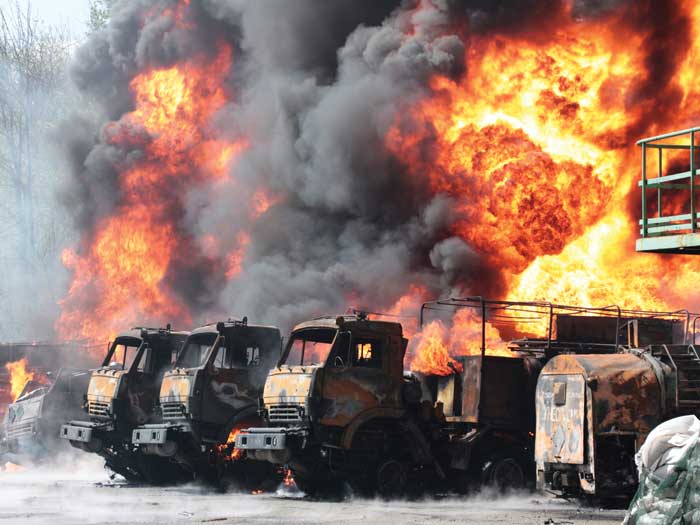
How the Cullen report is attempting to clean house
 The Cullen report included 101 recommendations ranging from tighter controls on casinos to more transparent land ownership records (iStock)
The Cullen report included 101 recommendations ranging from tighter controls on casinos to more transparent land ownership records (iStock)
Between the fall of 2015 and the spring of 2016, fraud investigators in British Columbia raided an unlicensed Richmond-based money services business (MSB) known as Silver International, alleging that the organization was involved in money laundering. According to court documents, the police asked the province’s director of civil forfeiture to obtain a court order to seize “cash in various currencies with a total value of more than $2 million, a residential property in Vancouver, casino chips with a value of $17,800, gift cards with a value of $9,250 and miscellaneous personal property.”
One of the company’s principals was arrested, with prosecutors later alleging that the firm had been used to launder more than $200 million in proceeds of crime. While MSBs are supposed to register with the Financial Transactions and Reports Analysis Centre of Canada (FINTRAC), a growing number of unlicensed firms were turning up, prompting what would become a tidal wave of concern about the Lower Mainland’s reputation as Canada’s best-known “laundromat” of dirty money.
Denis Meunier, a former deputy director of FINTRAC and former director general responsible for criminal investigations at the Canada Revenue Agency, told the Vancouver Sun in a March 2019 interview: “The operation of those MSBs merit, in my view, an examination by FINTRAC.” The newspaper’s reporters had identified dozens of unlicensed MSBs operating from strip malls and condos around the city-region.
Such incidents, plus the seemingly endless supply of lurid tales about modest Vancouver properties selling for millions of dollars, as well as mounting panic about exceptionally deep-pocketed gamblers showing up at Lower Mainland casinos, prompted an escalating series of investigations, crackdowns and inquiries, culminating with the formation of the Commission of Inquiry Into Money Laundering in British Columbia, widely known as the Cullen Commission, which produced a report whose far-reaching findings were released in June.
In handing over the 1,800-plus page document, Commissioner Austin Cullen, a B.C. Supreme Court Justice, was frank and unsparing in his conclusions, stating that the money laundering activity in areas like gambling and real estate represents “a significant problem requiring strong and decisive action.” In B.C., he added, money laundering is “flourishing.”
Almost a third of the report focuses on B.C.’s gambling and horse-racing industry, including provincially regulated casinos that enabled “hundreds of millions” of dollars in laundering. In 2014, the commission found that provincial casinos processed “$1 billion in cash transactions of $10,000 or more and nearly $200 million in transactions identified by the British Columbia Lottery Corporation as ‘suspicious.’”
One of the more dubious practices involved “cash facilitators”—people, often young men, who worked the floors of casinos, lending stacks of bills to wealthy gamblers who had run out of cash and wanted to continue playing. The money, it turned out, needed to be laundered and was often traced back to criminal activity in Asia.
 A focus on B.C.’s gambling and horse-racing industry makes up almost 1/3 of the Cullen Commission’s report (Alamy)
A focus on B.C.’s gambling and horse-racing industry makes up almost 1/3 of the Cullen Commission’s report (Alamy)
IMPOSING MORE STRINGENT REGULATIONS
Cullen’s 101 recommendations run the gamut from the general to the specific, ranging from tighter controls on casinos, money services businesses and mortgage brokers, to more transparent land ownership records and the dismantling of bureaucratic walls that prevent government agencies from collaborating on money laundering investigations. He also urged B.C. to establish an anti-money laundering commissioner to ensure collaboration among various stakeholders and also provide strategic oversight, including of the Chartered Professional Accountants of British Columbia (CPABC) in its regulation of members for AML purposes.
Cullen concluded that the accounting profession faces money laundering risks and vulnerabilities, and recommended that the profession’s provincial regulator do more in parallel to the federal AML regime. Cullen also acknowledged CPABC’s self-regulatory capacity, extensive regulation of accounting and its knowledge of the profession’s activities. But he urged CPABC to amend its code of professional conduct to explicitly include a requirement that members must self report to CPABC any finding by FINTRAC that the member has not complied with the federal AML legislation. In a statement following the release of the Commission’s final report, CPA Canada added that it is “encouraged” that Cullen is also pressing for a provincial government review of unregulated accountants, those who are not CPAs, to determine what form of anti-money laundering regulation and oversight may be warranted.
As had been widely expected, Cullen called on the provincial government to build on its example of the Land Owner Transparency Registry and set up a provincial corporate beneficial ownership registry and work with the federal government and other provinces to create a pan-Canadian registry before the end of 2023. (Quebec already has one.)
The report also includes 12 recommendations focused on Chartered Professional Accountants and the B.C. provincial body. Among them is mandatory ongoing education on anti-money laundering, increased reporting requirements and a cash transactions rule to limit the amount of cash that CPAs can receive in a single client matter.
INEFFECTIVE ACTIONS BY FEDERAL AGENCIES
Cullen’s most newsworthy pronouncements, however, focused on federal agencies such as the RCMP and FINTRAC, whose work in combatting money laundering he characterized as ineffective.
“FINTRAC,” Cullen wrote, “receives an enormous volume of reports from public- and private-sector reporting entities, but it produces only a modest number of intelligence packages that go to law enforcement.” Out of 31-million suspicious transaction reports (STRs) submitted by financial institutions to the agency in 2019 and 2020, only about 2,000 ended up being passed on to the RCMP, often after months of delays.
Brock Martland, senior counsel to the commission, says he recalls police investigators telling the panel, “By the time that comes to us, three months later, the money or the people have moved on and it’s stale. It's not useful for the investigation.”
FEDERAL FOCUS ON FINANCIAL CRIMES
The commission’s findings—the outcome of what had become a tsunami of dodgy large-dollar volume transactions in B.C. from the mid-2010s and onwards—have landed at a particularly opportune moment in the wider story about the whack-a-mole problem of money laundering.
After years of warnings and salacious revelations like those made by the Panama Papers about Canada’s status as a “snow-washing” haven, federal authorities and the Government of Canada have been working actively on finding ways to address these issues. In its most recent budget, Ottawa allocated more money for financial crimes investigations and amped up its efforts to establish a national beneficial ownership registry for federally incorporated private businesses. The Financial Action Task Force (FATF), which noted many improvements were required in Canada’s legal framework and AML regime in 2016, released an updated assessment last year, acknowledging that there’s now evidence of progress on the AML/ATF file.
The trucker convoy that descended on Ottawa and key border crossings earlier in the year revealed something else. In the wake of media revelations that convoy organizers were using crypto accounts and U.S. crowd-funding platforms to raise millions to finance the blockades and other illegal activities, the government’s emergency declaration revealed that federal authorities can, in fact, monitor, intercept and freeze these illicit money flows. In April, the Proceeds of Crime (Money Laundering) and Terrorist Financing Act (PCMLTFA) was updated to require crowd-funding platforms to register with FINTRAC, develop and maintain a compliance program and have firm know your client requirements, among others changes.
“That brought a lot of payment processors into scope of what an MSB registration requires,” says Cindy Zhang, a lawyer at Borden Ladner Gervais LLP, who specializes in this field. “So, now, a broader range of payment processors and crowdfunding platforms immediately have to register.”
 The war in Ukraine has increased the risk of Russian money laundering (CP Images)
The war in Ukraine has increased the risk of Russian money laundering (CP Images)
THE RUSSIAN CONNECTION
Perhaps more than anything else, Russia’s invasion of Ukraine has served as a giant wake-up call regarding the perils of unchecked money-laundering. The war “is absolutely relevant,” says Michele Wood-Tweel, CPA Canada’s vice-president for regulatory affairs.
“With Russia and Ukraine, there are two things going on: the increased potential for money laundering is there simply because Russians are trying to avoid economic sanctions,” says Wood-Tweel, also noting The Guardian’s report in June that the U.K.’s failure to tackle dirty money led to that country laundering Russian war funds. “What it shows is what Russia has done all these years—the money laundering that has taken place in places like London, England, through the use of real estate. This stuff has been long suspected and, here we are today, reeling from the effects of a country that’s gotten away with so much of this for so long.”
And, in fact, may still be getting away with it, as Russian oligarchs and other business interests turn to cryptocurrency and complex networks of shell companies (aided by jurisdictions with lax regulations) to protect assets ranging from yachts to soccer franchises.
“Every time, historically, with virtually no exception that I can think of, that sanctions have been imposed, there is a surrounding industry in evading the sanctions,” observes Janice Stein, a professor of global affairs and public policy at the University of Toronto’s Munk School of Global Affairs. “The real challenge is that sanctions, almost without exception, always leak. They leak despite the significant investment in monitoring. The question is, how badly do they leak?”
Canada has certainly not been immune to money laundering that originated from Russia. James Cohen, executive director of Transparency International Canada, points to the existence of limited partnership shell companies registered in Alberta that were found to be part of the infamous “Azerbaijani laundromat,” which funnelled proceeds of crime traceable to the Aliyevs, the country’s ruling family. “We’re at a reckoning point, and not just in B.C. and Canada, but globally,” says Cohen. “A lot of [Cullen’s] conclusions need to be read by the federal government. It was telling that, in the executive summary, the first swing by the commissioner is at the federal government.”
“Between the FATF evaluation for Canada and the Cullen report, we know Canada has a long way to go,” adds Sue Ling Yip, a partner in KPMG Canada’s risk consulting and financial crimes practice. “However, I’d like to say I’m seeing steps in the right direction.” She says FINTRAC has hired new staff with technical expertise and appears to be willing and ready to “leverage technology to support more effective regulation and enforcement.”
While recent federal budgets have increased funding for FINTRAC, notes Wood-Tweel, BLG’s Zhang agrees that FINTRAC has seemed “under-resourced” given the extent of its mandate.
HIDING VIRTUAL ASSETS
In June 2021, Binance, one of the world’s leading cryptocurrency exchanges, told its account holders that it would wind down operations in Ontario, where regulators had been unsuccessfully pressing the Cayman Islands-based firm to register with the Ontario Securities Commission (OSC).
Like many financial system regulators, the OSC was concerned about the use of crypto platforms for money laundering, tax evasion and other practices that thrive in the anonymity that virtual currencies promise investors. The move was coming at a time when huge sums of capital were pouring into crypto funds, including more mainstream retail platforms like Wealthsimple, as well as crypto ETFs.
The concern was not unfounded. In early June 2022, a Reuters investigation revealed that Binance had become a “hub” for “hackers, fraudsters and drug traffickers,” an allegation that the company’s compliance officials strongly denied. The investigation detailed anecdotes such as one about North Korean hackers who raided the wallets associated with a small Slovakian crypto exchange and rapidly laundered the proceeds through newly registered Binance accounts.
For the uninitiated or those who took their eye off the crypto ball for even a short while, the bewildering complexity of the virtual currency world seems impossible to keep track of, with the proliferation not just of tokens and exchanges, but also a dizzying array of technologies and variants, from stablecoin to DeFI (decentralized finance) platforms, as well as mixers, flash loans and cross chain transactions. All of which enables illicit funds that are sourced, for example, from ransomware attacks, to sift through warren-like crypto networks, leaving little trace of their origins.
The report notes that there are “numerous mechanisms available for bad actors to enhance the anonymity of illicit cryptocurrency transactions”
At a recent Europol conference on crypto and money laundering, one security expert described how self-executing “smart contracts” could automatically distribute crime proceeds deposited into a single wallet into dozens of anonymous accounts held in crypto exchanges all over the world.
Yip, at KPMG, cautions that the crypto market, despite its recent fluctuations, shouldn’t be seen as a space overrun by illegal activity. “There is a lot of misconception around that,” she says. “We don't want to paint the picture that it’s a free for all. There’s actually some guidance and regulation out there.”
“It’s difficult for regulators. It’s hard to keep regulator teams up to date with the fast-evolving crypto landscape,” adds Kareem Sadek, a partner, advisory, in KPMG's blockchain and cryptoassets practice. “While it might be difficult to nail down which areas to start with, market trends could help steer the areas of focus, for example stablecoins, trading, exchanges, miners and mining companies.”
New regulations promulgated in June 2021 expanded the definition of MSB to include anyone who deals in virtual assets and currencies, meaning they’re required to collect know your client (KYC) data from account holders. But many crypto exchanges allow “remote KYC,” an automated process, the rigour of which varies from firm to firm.
“I have heard from plenty of folks that have wallets,” says Zhang, who set up her own crypto wallet to see how the remote on-boarding process worked. “I asked, ‘How was your KYC process?’ And they’re like, ‘What’s that?’ And I said, ‘Well, what did they take from you when [you] opened an account?’ And it was just like, ‘Take a picture and send it in.’ It seems like you can game that for sure.”
AML expert and CPA José Hernandez, CEO of Ortus Strategies, who appeared at the Cullen inquiry on behalf of CPA Canada, says the other issue in terms of compliance is that, unlike large financial institutions, many crypto exchanges lack the experience and institutional muscle needed to clamp down on illicit activity. The exchanges, he adds, “are all working on becoming less of a vehicle to launder funds, but it is really an uphill battle for them to deal with this complex set of rules. On the one hand, you don’t want to see innovation being squashed because of regulation. But there’s a good reason why identifying the other side of a transaction is important.”
 The commission’s findings may resonate with Ontario legislators concerned about the way money has been flooding into the provincial real estate industry (iStock)
The commission’s findings may resonate with Ontario legislators concerned about the way money has been flooding into the provincial real estate industry (iStock)
While the Cullen Commission’s primary remit involved a deep dive into gambling, real estate and horse-racing, the report does offer some trenchant observations on the world of virtual assets. The report notes that there are “numerous mechanisms available for bad actors to enhance the anonymity of illicit cryptocurrency transactions,” while investigators must follow the digital breadcrumbs through blockchain transactions to determine the source of suspicious sums. What’s more, Cullen added, Canada’s patchwork of beneficial ownership rules doesn’t cover virtual assets. The commission’s report recommends tougher regulation of MSBs and crypto currency exchanges.
As Martland, the commission co-counsel, points out, “Absolutely, [crypto] is portrayed and described as an emerging risk area and one where [B.C.’s proposed] AML commissioner will need to stay abreast of the changes.”
MOVING IN THE RIGHT DIRECTION
In the aftermath of the huge expectations that swirled around the Cullen Commission’s work, the critical question now is: what happens next? While the report was generally well received and generated headlines, it also happened in the midst of a war that has focused the world’s attention on the fruits of the disguised proceeds of crime.
While Cullen’s findings focused on both the federal government and B.C., the commission’s findings should likely be resonating with Ontario legislators concerned about the way money has been flooding into the provincial real estate industry.
The Cullen Commission also made several recommendations that centred on the legal profession as well. CPA Canada works hand-in-hand with IFAC who has partnered with the International Bar Association to combat financial crime and money-laundering. Just as the accounting profession needs to address issues raised by the commission, “The Canadian Bar Association needs to address this,” says University of Ottawa management and law professor, and CPA, Marc Tassé.
Martland, for his part, says the problem of bringing lawyers under the FINTRAC regulatory regime is “genuinely challenging,” and adds that it’s the provincial governments, not Ottawa, that should be enacting reforms.
One point does seem quite clear, however, which is that a long period of history that allowed Canada to become known internationally as a secrecy haven has drawn to a close. As Wood-Tweel predicts, “the pace of change will continue and [AML] is going to be a very high activity area in 2022-23.”
KEEP READING
Anti-corruption expert José Hernandez talks about what CPAs can do to fight corruption and money laundering.
Plus, be sure to bookmark CPA Canada’s AML resources and updated Guide to comply with Canada’s anti-money laundering and anti-terrorist financing (AML/ATF) legislation.